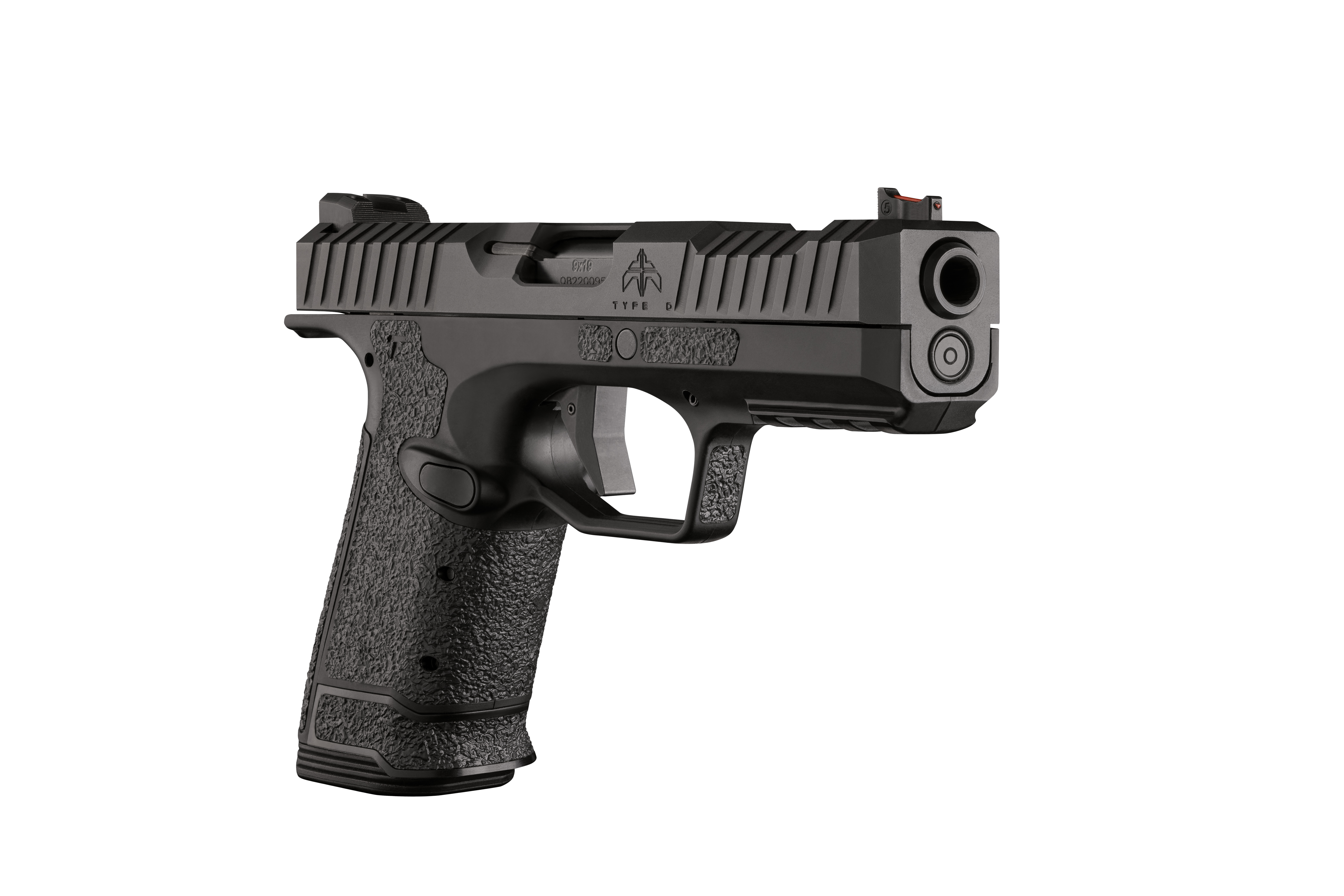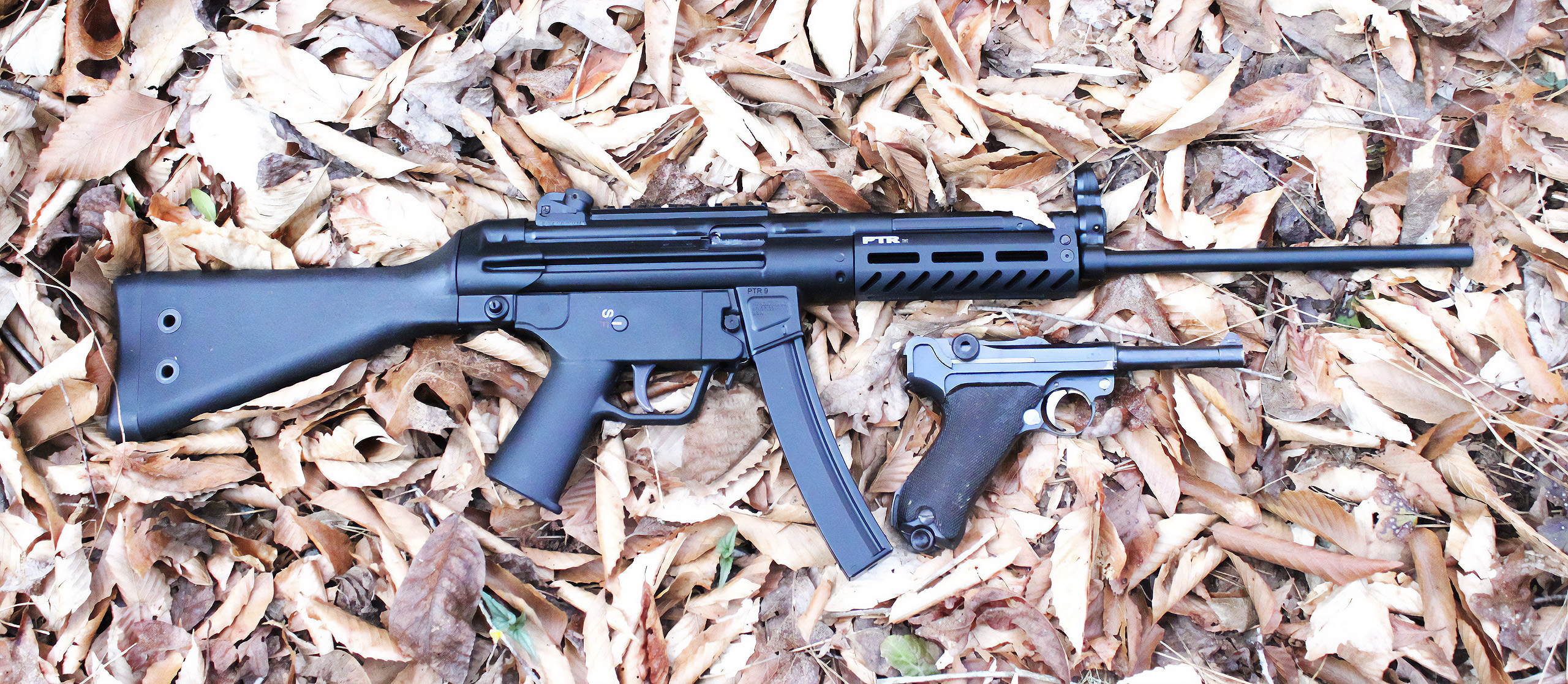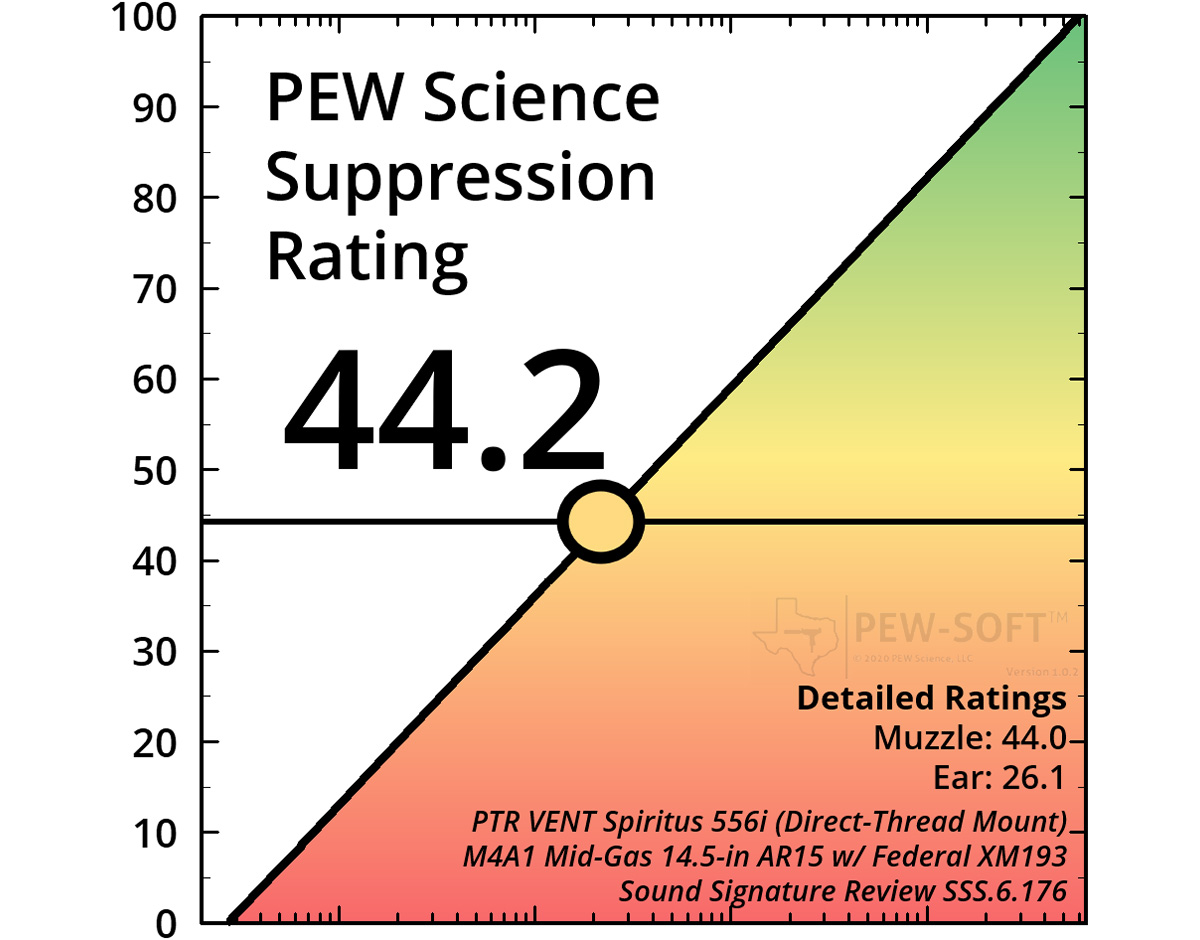The story of the Archon Type B begins in Russia around 2012. At that time the pistol was known as the Strizh and was being tested by Spetsnaz units. All seemed to be going well with the pistol cruising towards adoption. Then, at the last minute, testing stopped, and the Strizh was no longer being considered.
Did budgetary issues cause cancellation? Were reliability or durability issues discovered? Did the pistol’s designer fall from favor with the Russian government? Much speculation about what happened exists. We do know that, despite seemingly positive feedback, the Strizh was not adopted. A year or two later, the pistol’s designer was in Italy partnering with an Italian company to produce the Strizh, now called the Arsenal Strike One, for international sales.
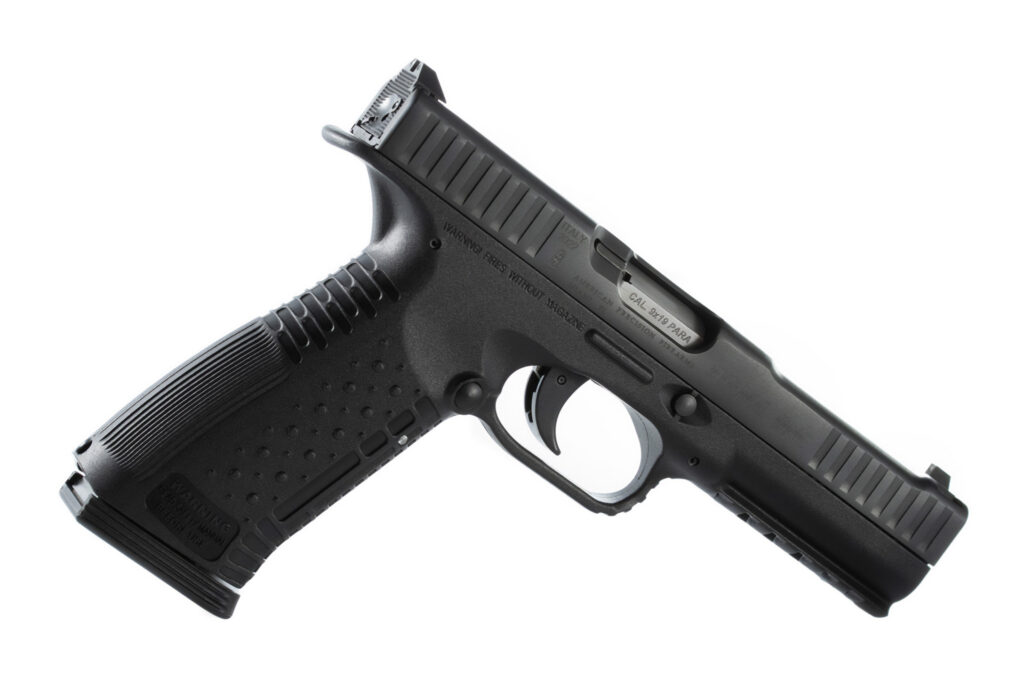
Arsenal Strike One pistols came to American shores in small numbers in 2014 and were met with much excitement. This excitement soon waned. Lack of aftermarket support, reports of quality control issues and a fairly high price turned many potential customers away. In response to U.S. market feedback, the gun was slightly redesigned and reduced in overall size.
This new, more-compact version was called the Arsenal Stryk B. RUAG, a European manufacturing conglomerate, agreed to make this new pistol. It was distributed by Archon Firearms as the Archon Type B. The Archon Type B, like the Strike One, was met with much enthusiasm. All seemed well until disputes arose between manufacturer and importer that halted U.S. imports. The story may have ended there, but it is not yet over. The Type B is once again available and is now being imported by PTR Industries, Inc. in Aynor, S.C.
This importation agreement was announced in late 2023, with pistols being available shortly thereafter. PTR is best known for producing rifles and pistols based on the roller-delayed Heckler & Koch operating system. PTR is branching out with the Type B. Current Type Bs are imported, but PTR plans to produce them in the States to streamline supply chains and safeguard future availability.
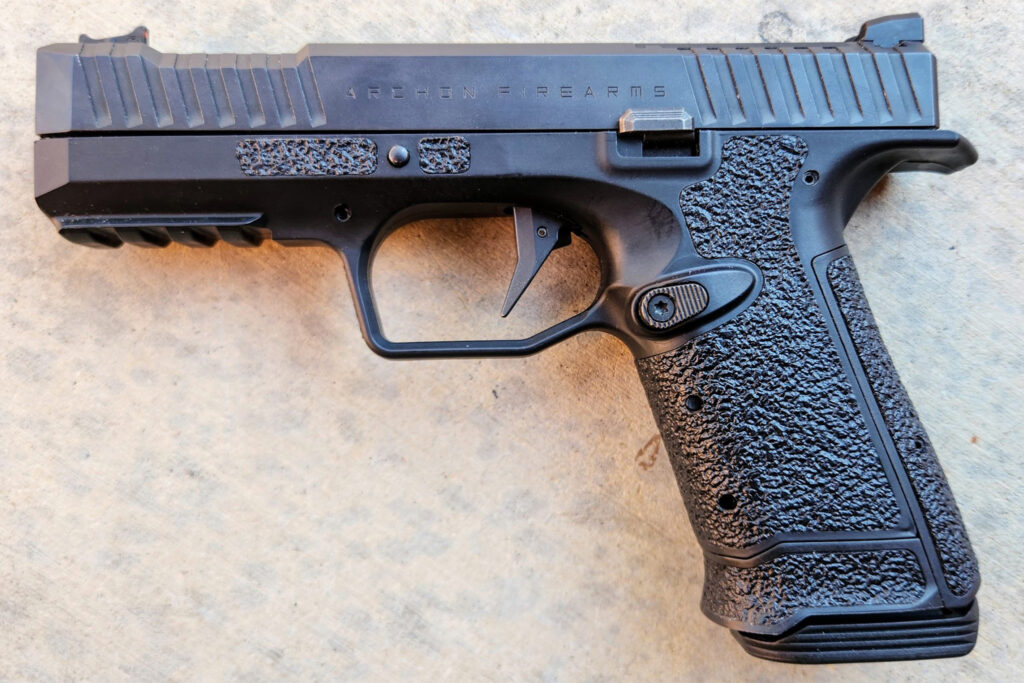
The Type B is chambered in 9 mm Luger and is recoil-operated and striker-fired. The slide, barrel and subframe are steel and serialized as a set, as is the common European practice. The subframe contains the trigger components and slide rails and is held into the polymer grip by two roll pins. It can be removed from the grip for maintenance or detailed cleaning. This removable grip does give the pistol some modularity, although replacement polymer grips are not readily available.
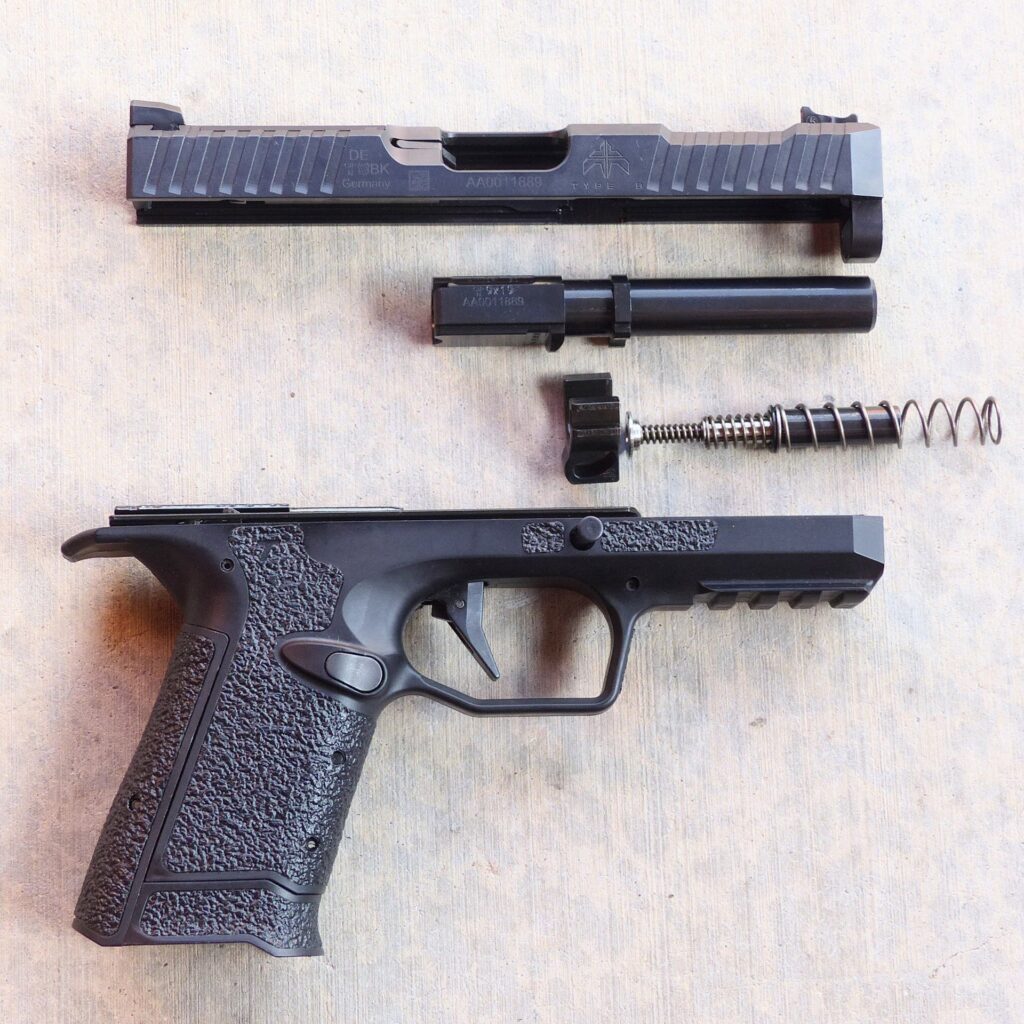
Much has been written previously about both the Strike One and the Type B’s low bore height above the shooter’s hand. Generally speaking, a lower bore will drive recoil energy more directly into the shooting wrist and arm and will aid in recoil control. The Type B’s low bore height is attributed to the breech locking system called the AF-Speedlock.
The AF-Speedlock is comprised of a U-shaped block that fits around lugs machined to the exterior of the barrel ahead of the chamber. Think Bergmann-Bayard System. This block slides up and down and is controlled by a cross pin in the frame. The block, in its upmost position, fits in recesses machined into the left and right of the slide in front of the ejection port. Upon firing, the barrel, slide and locking block move rearward as a unit in recoil. The cross pin in the frame pulls the locking block from its recesses in the slide as well as from its lugs on the barrel. Once the locking block is lowered, the slide is free to move on its own. As the slide is propelled forward by the recoil spring, the locking block is cammed up by the cross pin, locking the slide and barrel together as again. Being that the locking block itself moves up and down and is separate from the barrel, the barrel moves laterally and does not tilt.
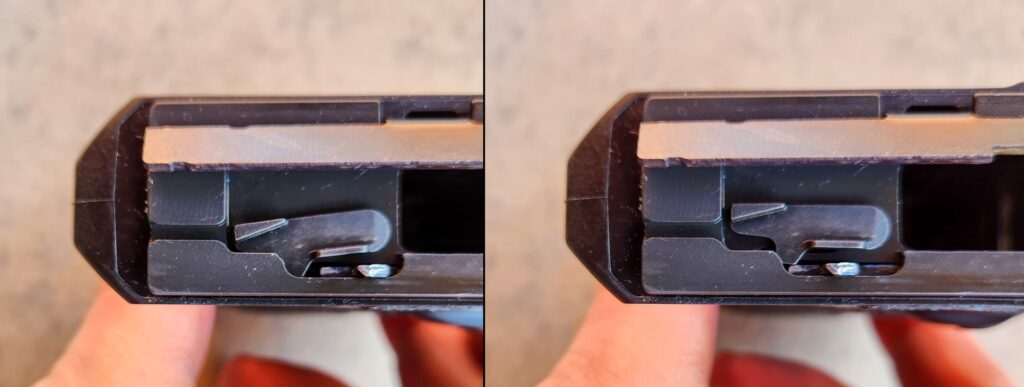
The AF-Speedlock may reduce bore height, but it alone does not account for the Type B’s low slide. The pistol’s internal parts are laid in such a way as to make the bore height as low as possible. The ejector, a flat stamped bar on the left side of the frame, is set at roughly 45 degrees, which helps reduce the height of the slide above the frame. The sear hook on the striker is dog-leg shaped, also reducing height. Lastly, the sear rotates from side to side with the motion of the trigger instead of pivoting up and down as is the more common usage. All these small features combine to make the Type B one of the sleekest, most-trim pistols on the market.
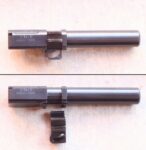
Ergonomically, the Type B is well-executed. The frame is extended out slightly at the rear to keep the shooting hand below the slide. The area below the trigger guard is undercut. These allow for a high firing grip, which further helps control recoil. The gun has a rather blocky appearance but is devoid of sharp or rough edges. The slide release lever on the left side of the frame is set above the frame which should aid in avoiding accidental contact by the support hand. The slide release is present on the left side of the pistol only and is not reversible. The magazine release is a rather large button that is easily pressed but is not so large that it could be accidentally pushed when carrying or handling the pistol. The magazine release button is not bilateral but is reversible.
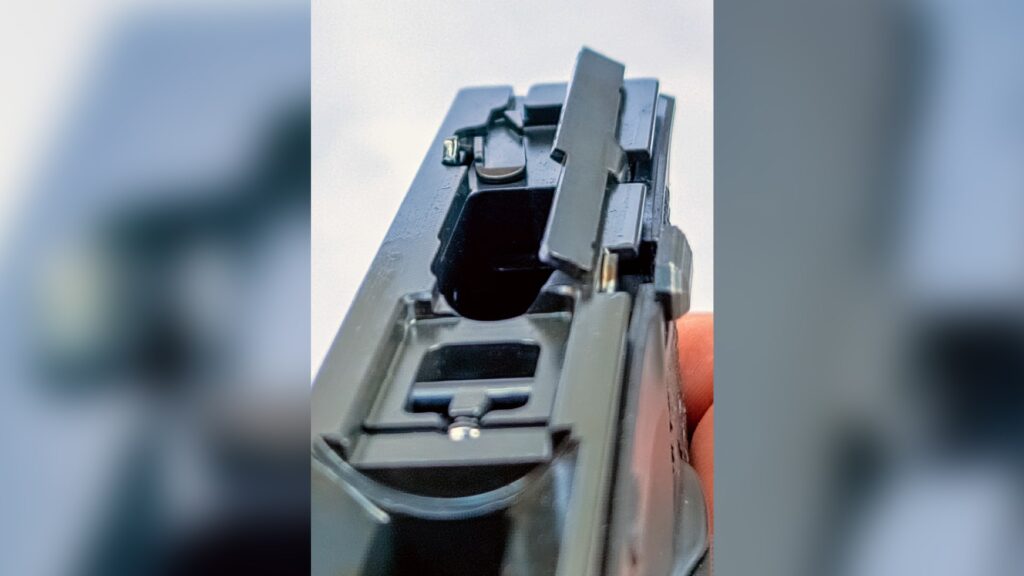
A most unusual ergonomic feature is the “tendon depressor” below the grip tang. This is a raised ridge or bump set into the tang’s radius. The idea is that this ridge will press into the meaty area of the shooting hand between the thumb and trigger finger, thereby passively causing the hand to close. At first glance, this protruding ridge would seem uncomfortable but went unnoticed when actually gripping and firing the handgun. Whether or not this depressor enhances the shooting grip is debatable, but it is an interesting feature, nonetheless.
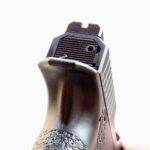
The trigger on our test sample measured a consistent 5-lb., 4-oz. pull with a slight amount of crunch or creep and a bit of overtravel. The Type B’s trigger is angular in shape and flat at two facets. It presents a flat trigger surface when fully released and also when the trigger is pressed. It is made of metal and is locked from movement when fully released as a safety feature. Interestingly, the trigger itself pivots on a small hinge. The trigger shoe has two small tabs that block rearward movement unless the trigger is pressed. In essence, the trigger itself serves the function of the trigger tab safety seen on many other designs.
PTR is importing the Archon Type B in two formats or “generations.” The gen 1 guns are very close to the Type B pistols of yesteryear, with the same multi-directional sawtooth grip texture (what the company calls grip mapping) and fixed grip length. Gen 2 guns use a new modular grip frame that can be lengthened or shortened using a set of detachable plastic grip extensions. Also new is an interchangeable back panel system that includes four inserts. The gen 2 uses a stick-on grip texture supplied by TALON Grips that can be peeled off and replaced.
Lastly, the gen 2 uses a new magazine release. It is reversible like the gen 1’s catch but is now retained by a screw and cannot be removed on accident. The gen 2 guns are available “optic ready.” The purchaser has a choice of either RMR, ACRO or Shield RMS dedicated cuts. Depending in which optic is chosen, taller iron sights may be needed. The Type B uses Glock-pattern sights, so finding taller sights should be a simple task. The gun ships with a black serrated rear and a red fiber optic front. The pistol evaluated here is the gen 2 with the RMR cut.
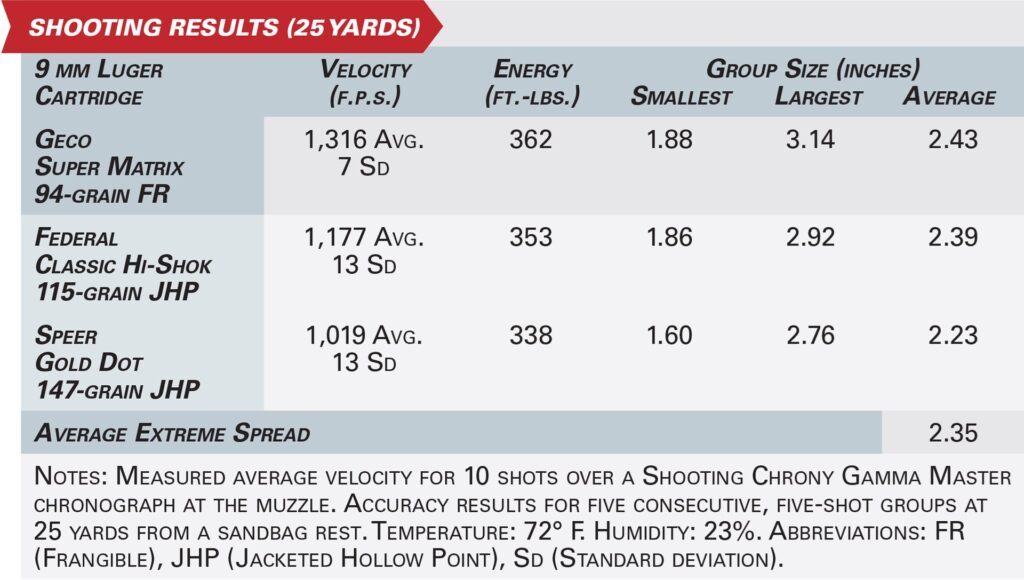
Does the Archon’s low bore height translate to a performance advantage? To test this, we ran the Type B through a series of five “Bill Drills” at 7 yards for a total of 30 rounds. Each individual drill’s time was recorded, and a penalty of one second was added for any round landing outside the A zone on a standard USPSA target. Times and penalties were then added for a final score. For comparison, we ran the same series of drills with an M1911 chambered in 9 mm Luger. The results? Our total without penalties for the Type B was 6.64 seconds and an adjusted 12.64 seconds after penalties. The 9 mm M1911 yielded a total of 6.55 seconds and 11.55 seconds with penalties. So the M1911 proved to be slightly faster in our simple test, but it is also a much heavier gun with a shorter trigger.
Windy conditions on the range caused some frustration during chronograph and accuracy testing. Still, we were able to obtain some good groups with the gun with a variety of ammo. Accuracy results and chronograph data is provided in the accompanying table. Overall, the Type B proved to be accurate and fun to shoot. We had one failure to feed during the first magazine. No other malfunctions occurred afterward.
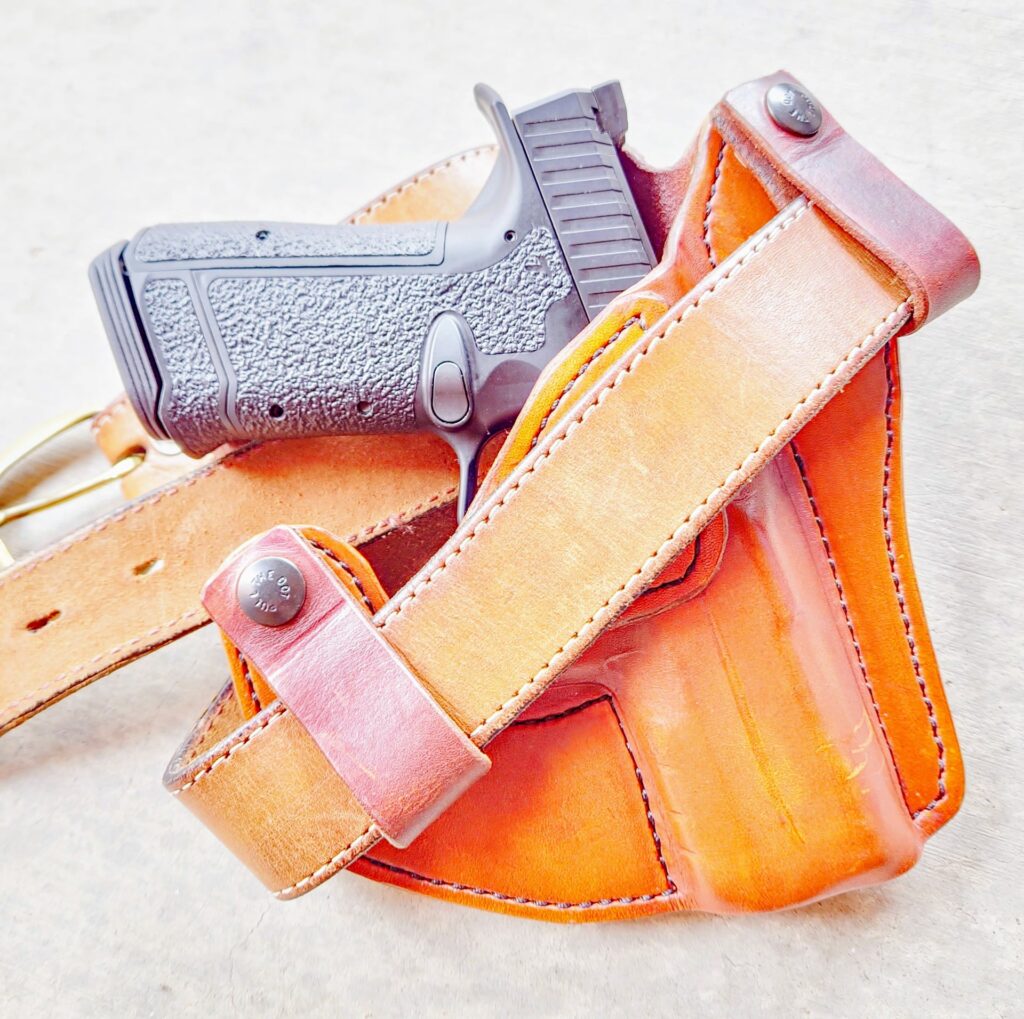
The Archon Type B is a unique pistol. Can it find a home in a saturated market of 9 mm polymer-frame pistols? It already has a small but dedicated fan base, and there are a few shops offering custom leather or Kydex holsters. With PTR’s involvement, hopefully, the accessory market will expand and we’ll see tungsten-infused or steel grip modules for the competition markets, as well as longer and shorter slide and barrel options to exploit the pistol’s modularity. Maybe, finally, this Russian-designed pistol will find success with an American manufacturer.
Importer: PTR, Aynor, S.C.
Action Type: short-recoil-operated, semi-automatic, centerfire pistol
Chambering: 9 mm Luger
Frame: steel with polymer grip
Slide: carbon steel
Barrel: 4.3″ stainless steel
Rifling: six-groove, 1:10″ RH-twist
Finish: matte black
Magazine: 15- and 17-round detachable box
Sights: black serrated square-notch rear, fiber-optic front
Trigger: 5-lb., 4-oz. pull
Overall Length: 7.70″
Height: 5.20”
Width: 1.10”
Weight: 13.40 ozs.
Accessories: owner’s manual, grip extension, backstrap inserts, lock
MSRP: $960

